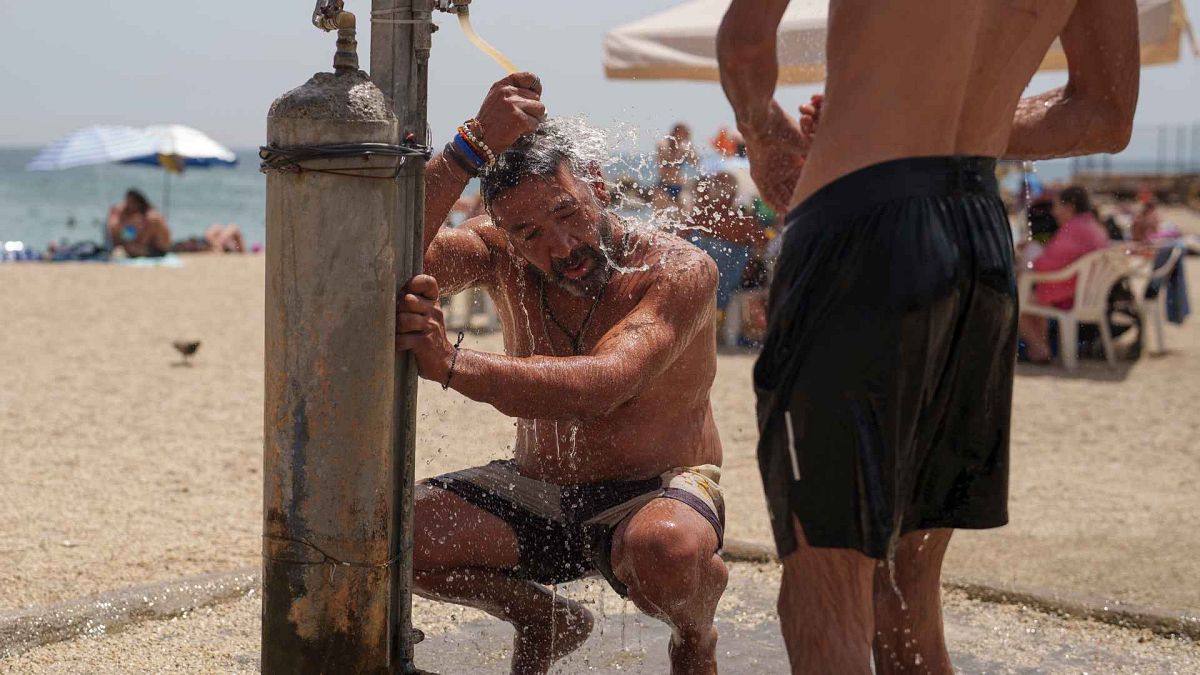The Acropolis and other archaeological sites have been closing to visitors amidst a heatwave that has seen temperatures soar to 43 degrees celsius.
Greece's most popular tourist attraction, the ancient Acropolis site, shut from 12-5pm for the last two days in a bid to keep visitors safe. All other archaeological sites in the Greek capital were also shut during the same hours.
Local media have reported tourists fainting while queuing up to get into the Acropolis. 4 million tourists visited last year.
Athens is using drones to monitor temperatures across the city and plan the public health response.
Greece heatwave: How long will it last?
Greece is currently gripped by a heatwave which started last week.
It is believed to be driven by southerly winds bringing hot air and dust from North Africa.
Temperatures at the Acropolis are reported to have reached 40 degrees celsius.
Cooler weather is expected this evening (Friday).
Greece is one of the most climate-impacted countries in Europe. Last year, rising temperatures fuelled deadly wildfires and erratic rains caused some of the worst flooding on record, both of which damaged crops and livelihoods.
Are there currently wildfires in Greece?
Officials are on heightened alert for wildfires, which plague Greece every summer but are increasing in frequency and severity due to climate change.
The minister responsible for civil protection, Vassilis Kikilias, said yesterday posed a particular wildfire risk due to the combination of high temperatures and winds.
“The early start of the heat waves, combined with the dry winter, has led to a very difficult fire season,” he said.
The fire service also warned of a very high wildfire threat on Friday.
The Acropolis fights back against overtourism
The Acropolis has been trying to control visitors numbers for years.
Visitors have previously complained of overcrowding at the ancient site.
In 2023, authorities introduced a daily visitor cap of 20,000 per day and staggered entry times.
Are flights to Greece affected?
There are currently no reports of flight delays or cancellations due to the very hot weather.
As always, passengers should check airline and airport websites before leaving for the airport in case of any changes.
Authorities in Athens announced the closure of the Acropolis for five hours due to heat wave temperatures that also prompted many schools to close.
How else has Greece been affected by the heatwave?
Schools have been closed in parts of southern and central Greece where the temperatures were highest.
Athens authorities announced that garbage collection would also be halted for several hours today and that seven air-conditioned spaces would be opened to the public.
Is it safe to travel to Greece?
At present, no European governments have warned against travelling to Greece.
However heatwaves can be very dangerous, especially for more vulnerable populations such as babies, children and older people.
Experts recommend staying out of the sun during the hottest hours of the day, usually from 11am-4pm, covering up if you do need to go outdoors to protect from sunburn, and staying well-hydrated.


